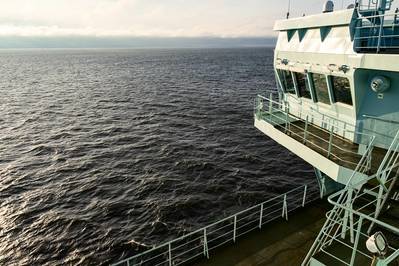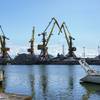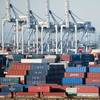Russia Opens 2024 Arctic Route for Shipping Urals Crude to Asia
Russian shipping company Sovcomflot has started this year's transportation of Urals crude oil to Asia via the Northern Sea Route, according to market sources and LSEG data on Tuesday, as melting ice opens the Arctic route for transit shipments.
Russia wants alternative routes to Asia from its western ports as Western sanctions have made it increasingly difficult for its fleet to operate in waters close to European Union countries.
But the Northern Sea Route (NSR), though significantly shorter than the Suez Canal alternative, is challenging and requires the assistance of icebreakers to help vessels to pass along the northern coast of Russia.
It is normally opened for oil shipments from July to October.
The NSR runs for about 5,600 km (3,500 miles) and connects the port of Murmansk near Russia's border with Norway eastwards to the Bering Strait near Alaska. The ice has shrunk in recent decades in a trend scientists have linked to man-made climate change.
President Vladimir Putin has pushed the development of the route as part of Russia's pivot to Asia amid the biggest crisis in relations with the West since the depths of the Cold War.
Aframax vessel Viktor Bakaev, operated by Sovcomflot and sanctioned by the U.S., loaded some 100,000 metric tons of Urals crude in Primorsk on July 21 and is currently in the Barents Sea on the way to Asia, LSEG data shows.
Another two of Sovcomflot's Aframax crude vessels, Korolev Prospect - which is also under U.S. sanctions - and Vernadsky Prospect, are currently heading west via the NSR from Russia's Far East, the data shows.
Two industry sources said these tankers are likely to load oil from Russia's western ports for supplies to Asia.
It was not clear which Asian ports the oil would be delivered to or if it would be offloaded to other vessels in Russia's Far East. The cargoes will likely be delivered to China, the market sources told Reuters.
In June the European Union imposed sanctions on Russian shipping group Sovcomflot following the designation of 14 of its tankers by Washington earlier this year.
Sovcomflot did not immediately reply to a Reuters request for comment.
Demand for shipments via the Arctic route among Russian oil companies is set to stay high in 2024 as at least seven of Sovcomflot's 100,000-tonne vessels have already received permission for transit navigation along the NSR this year, according to Rosatom's open register of applications.
Last year Russia sent some 0.6 million tons of Urals crude to Asia via NSR. This year oil volumes transported via the route are expected to rise significantly, the sources said.
Rosatom, the Russian state nuclear agency also in charge of navigation via the route, provides ice-breakers that assist tankers in their voyages via NSR.
Russia in 2022 approved a development plan that saw cargo volumes rising from 34 million metric tons in 2022 to 150 million in 2030. Last year the turnover exceeded 36 million tons.
(Reuters - Reporting by Reuters; editing by Guy Faulconbridge, Alexandra Hudson)














